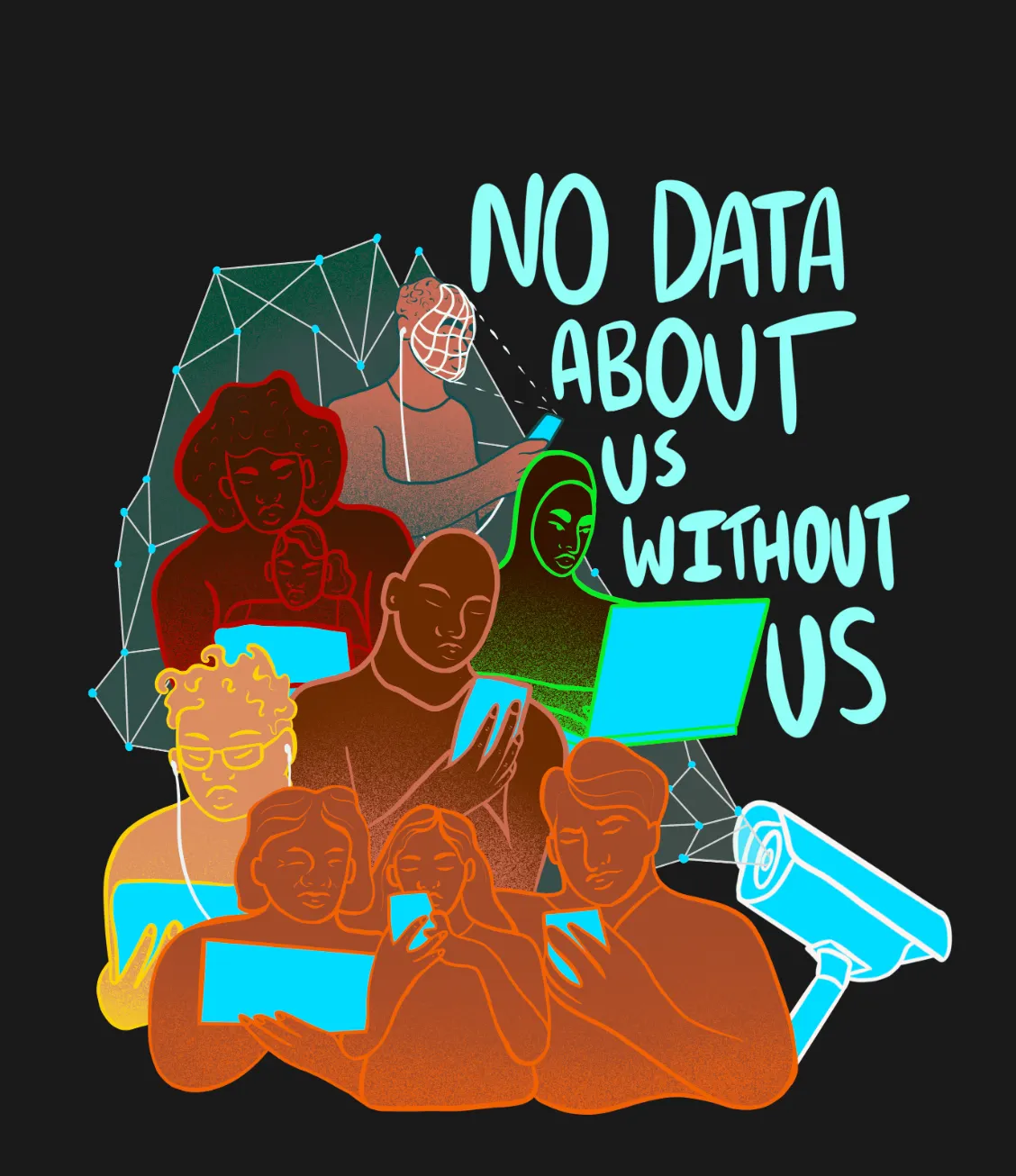Results of the Participatory Survey “What are the Dangers that Threaten Your Safety in Geneva?”
Laura Garcia VargasIn partnership with OPPi, from June 22 to November 15 of 2022, we invited the residents of Geneva to participate in the online participatory survey “What Are the Dangers That Threaten Your Safety in Geneva?”.

J.B.R.
Edgelands is a pop-up institute that creates spaces to explore how the digitalization of urban security is changing the urban social contract. These are spaces for broader discussions about the benefits and challenges in the way that digital tools are being used by city governments and private actors.
To begin our work in Geneva, between February and April 2022, the Edgelands Geneva Team conducted over 40 interviews, and hosted 3 round tables, where we asked different people in Geneva—from members of government, academia, civil society, and regular citizens—How is the digitization of security transforming the social contract of the city?
As a result of those interview and round tables, we wrote the Diagnostic Report GENEVA: A CITY OF PARADOXES AND DUALITIES. The three main findings of this report were i) the issue of security and safety is reserved to exclusive expert circles; ii) the digitalization of society is happening rapidly and the public discussion about it is lacking; and iii) private companies play a prominent role in the digitalization of urban life.
Based on this Diagnostic Report, since June 2022 we have been hosting various spaces where resident of Geneva can explore, think, and discuss about the benefits and risks of the use of digital technologies to provide public security in Geneva and on the going digitalization of our daily lives.
One of these spaces was the online participatory survey, “What Are the Dangers That Threaten Your Safety in Geneva?” In partnership with OPPi, from June 22 to November 15 of 2022, we invited the residents of Geneva to answer some questions, and to leave their comments and opinions. We got 414 respondents, and 114 comments.
The Aim of the Survey
In a time where most parts of our lives are mediated by a digital technology, the conversations around security and insecurity and the different trade-offs that individuals are willing to make are complex. They involve multiple stakeholders, interests, and they are usually framed on complex terms that require high degree of technical knowledge.
Thus, this participatory survey should be seen as the first step of a longer conversation. Its goal was to provide a platform for large-scale generative dialogue and conversation, a quick but powerful “dipstick,” were we examined (and discovered) the complex issue of security and digital technologies in Geneva from different angles and perspectives. If we use the medical analogy, a “dipstick” is like the stethoscope or doctor who then informs the choice between an MRI, CT scan, X-ray or ultrasound for the next phase of analysis.
Participants were asked to answer two types of questions: seed statements and multiple-choice questions. The first ones were fact statements of opinion about different issues related to security in Geneva, on which people were asked to choose between three options: agree, disagree, or undecided. With these we wanted to measure people’s feelings about these statements. The multiple-choice questions ask participants to choose from predefined options regarding demographics (such as age, gender, and occupation), and about their perceptions about the responsibility for their digital security, the data that is being collected, and trusted actors. These questions helped us to understand the demographic profile of our respondents as well as to “slice and dice” the results of the seed statements by any of these variables.
After answering all the questions, participants were shown a real-time summary of the results of the entire survey, the opinion group in which they fall under, and the other opinion groups and the statement in which they share the same and different opinion. As part of the methodology developed by OPPi, showing the results and opinion groups at the end has 3 benefits. First, it helps individuals in society to cultivate self-awareness and collective awareness. Second, it shifts the ownership or burden of the issue from the organizers to the community (i.e., leaders and community respondents). Third, participants start to contribute more meaningful comments and statements to build common ground with their peers.
Below you will find the Executive Summary of the report “Citizen Science for Tri-Sector Response: Participatory Citizen Sentiment Crowdsourcing Study in Geneva,” where we explain in more detail the survey’s methodology, and share its results.
Executive Summary
How do we understand the perception of security of the residents in Geneva? Edgelands Institute sought to answer this question in its second pop-up location in Geneva. In the spirit of community-based participatory research (CBPR), the team conducted a series of interviews, focus groups and discussions with academia, students, media partners, research experts and citizens for about 1 month to distil 15 seed statements and 7 multiple choice questions (MCQs) for a participatory and emergent survey that was launched on 20th June 2022. After reviewing the initial set of results from 182 participants, the research team enabled 2 additional seed statements and 1 additional MCQ on 18th July 2022. The conversation ended on 15th November 2022 with 414 respondents.
The study revealed 3 different clusters of opinions or tribes. Group A (22% of 414 respondents) felt safe and secure in comparison to the majority of the respondents in Group B (53% of respondents) who felt afraid and insecure. Group C (22% of respondents) were either undecided or afraid about security in Geneva. The survey revealed a moderate lack of trust in public institutions and a serious mistrust of big tech companies.
To quantify and compare perceptions of fear, we ranked the fears of 7 issues in an ‘Axis of Fear’. It revealed the fear of use of personal data by big tech was the highest; followed by algorithms; then surveillance; digital frauds; improper use of personal data by the government; and lastly the fear of physical security.
We created another ‘Axis of Agreement’ or ‘Axis of Public Approval’ which showed that the trust in the competence of authorities to protect digital life was the lowest; followed by trust in the reliability of and effectiveness of social media and then feelings of security with authorities using more technology to protect citizens. Addiction and attention span contributing to a problem for public health registered the highest agreement; followed by the perception of people in Geneva not reporting digital crimes; the possibility of envisaging a digital service ‘outage’; the feeling of overwhelm from the digitalisation of urban and social life; the difficulty of filling digital government forms; and finally, agreeing that personal data collected by government be stored overseas.
There were 5 issues that were highly divisive which warranted greater public discourse and consensus building in society. They were the following: whether the increased digitalization of urban and social life felt overwhelming; the fear of being a victim of digital frauds; the fear of improper use of personal data by the Geneva government; the fear of use of more technology by the police and government; and finally, the effectiveness of sharing of incidents on social media as compared to reporting to the authorities.
Overall, age and residency status were 2 important identity or demographic markers that accounted for some differences in the way the respondents voted. The qualitative insights from the comments revealed complex layers of nuance and texture that hinted at deeper root causes of issues that needed to be addressed e.g. socio-economic or class divide or a growing digital-literacy divide.
Using the ‘Axis of Fear’, ‘Axis of Agreement’, Decision Matrix and crowdsourced comments as inspiration, we put together a list of 19 detailed recommendations under 9 high-level broad recommendations themes. We visualised these recommendations in a 3X3 matrix which represented 3 different actors in society who could work on several action items along 3 levels of priority. We conclude this Executive Summary with six of the more notable recommendations.
First, there was a sense of resignation or ‘learned helplessness’ that power has tilted too favourably in the hands of big tech companies. Society needs to have a countervailing force to keep big tech interests in check. A trisector “public-people-private” sector partnership of deliberative democracy processes (e.g. vTaiwan) or citizen review committees and citizen panels that explore and sensitise the public to the nuances of the arguments for all stakeholders could help society progress more delicately and artfully towards consensus on such matters. 3rd party audits of the transparency and proper use of personal data by big tech companies would help allay fears by citizens.
Second, more needs to be done by the authorities to earn back the trust of the people. The authorities need to grow and demonstrate their competence to protect the digital lives of citizens. They need to ensure the proper use of personal data of citizens and residents as well as allay fears by citizens on the increased presence of digital surveillance in their daily lives.
Third, downstream justice and law enforcement responses have not developed sufficiently to cope with digital crimes that are evolving at a much faster pace. There is an urgent need for citizens and residents to be educated on their rights to their data and the pathways for recourse when their rights are violated. Better coordination between the police, judiciary and citizens is required to respond quickly to the evolving nature of digital threats.
Fourth, addiction to technologies, the reduction of attention spans, fears of algorithms, and their impact on public health are a ‘ticking time bomb’ ready to implode in the near future if we do not take pre-emptive or proactive steps to addressing the issue. The comments seem to suggest that the problem is out of control and very complex, thus requiring multiple stakeholders to come together to co-operate.
Fifth, society should come together to discuss how the reliability of social media as a source of information and awareness of security threats in Geneva could be improved as well as how it could complement formal reporting channels to the authorities. This is an area of nascent development that requires a more concerted people-public-private sector deliberation that could be stress-tested with a series of scenario-planning exercises.
Sixth, there is a significant proportion of elderly and digitally non-literate minorities in the population that find digital government forms difficult to fill. A policy development framework based on the philosophy of ‘centering the margins’ ought to be adopted to bridge the gap between those with digital literacy and those without digital literacy. One example of this would be having more human assistance for these services and human-centred design digital forms whose UI/UX design are optimised for these minorities.
Here you can read the full report [English Only]



